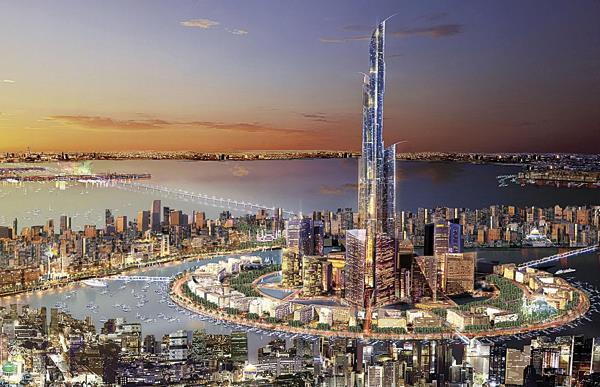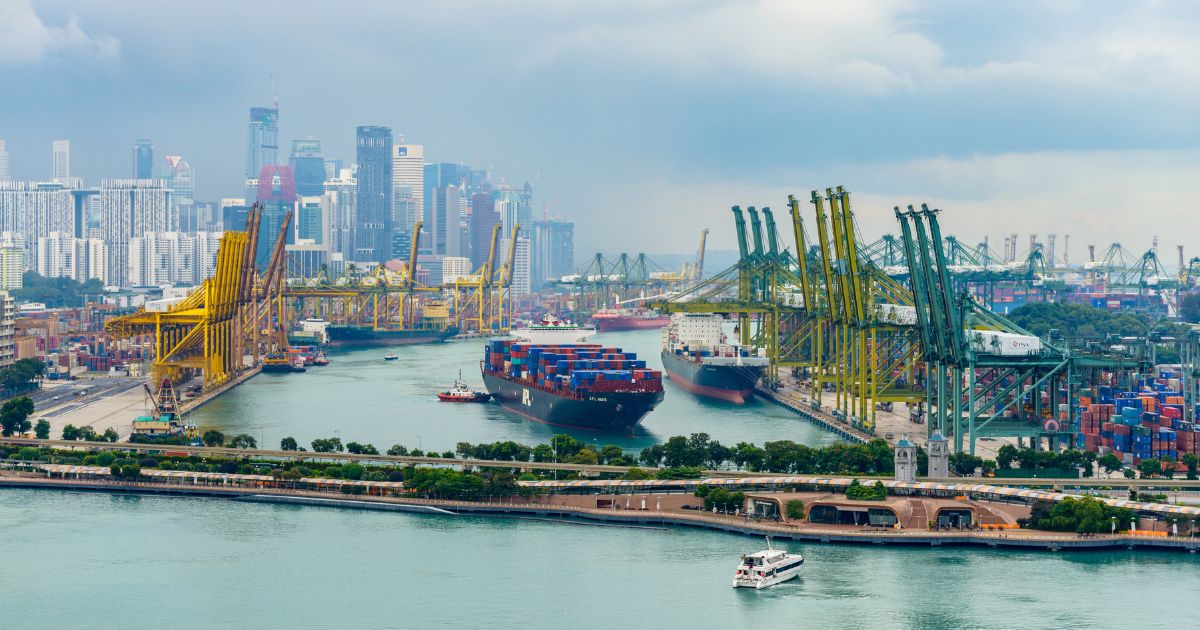Kuwait has long been recognized as a strategic gateway to the Middle East, connecting Asia, Europe, and Africa through its maritime trade. In today’s fast-paced global economy, the country is not just relying on its traditional port strengths but is actively reinventing its seaports into intelligent, technology-driven hubs. The development of smart ports is positioning Kuwait as a leader in faster, more efficient trade operations, ensuring long-term economic growth and resilience.
A smart port is more than just an upgraded harbor; it is a dynamic ecosystem powered by digital innovation, automation, and data-driven intelligence. By adopting advanced technologies, Kuwait aims to create ports that are faster, safer, more environmentally sustainable, and highly competitive on the international stage.
Why Smart Ports Matter for Kuwait
Kuwait’s economy is heavily tied to trade and logistics. With rising global demand, traditional port operations face mounting pressure. Long processing times, congestion, and manual handling are no longer sufficient to meet international standards.
Smart ports help overcome these challenges by introducing:
- Automated cargo handling for reduced waiting time.
- Real-time tracking systems that provide transparency.
- AI-powered analytics for improved decision-making.
- Sustainable operations that lower environmental impact.
For Kuwait, smart ports are not just an option but a necessity to strengthen its role as a global logistics hub.
Government Vision and Strategic Plans
The development of smart ports aligns with Kuwait Vision 2035, the national blueprint for transforming the country into a financial and trade hub regionally and globally. By investing in maritime modernization, the government is ensuring that trade remains the backbone of economic progress.
Under this vision, Kuwait is actively promoting:
- Digital transformation in shipping and logistics.
- Expansion of port infrastructure with modern facilities.
- Integration with regional and global supply chains.
- Collaboration with global tech leaders for smart solutions.

This forward-thinking strategy highlights Kuwait’s determination to compete with leading trade nations and set benchmarks in port efficiency.
Cutting-Edge Technologies Powering Smart Ports
Kuwait’s journey into smart ports is being built on advanced technology pillars. These innovations are shaping the future of trade operations.
Automation and Robotics
Automated cranes, smart forklifts, and robotic handling systems are reducing dependency on manual labor, speeding up loading and unloading, and improving safety.
Internet of Things (IoT)
Sensors and smart devices are used across the port ecosystem to track cargo movement, monitor equipment, and predict maintenance needs.
Artificial Intelligence (AI)
AI-driven analytics allow smarter decision-making by predicting cargo demand, optimizing resource use, and preventing delays.
Blockchain for Transparency
Blockchain technology helps ensure secure documentation, reducing fraud and improving trust among trade partners.
Green Energy Solutions
Smart ports also integrate renewable energy sources, electric vehicles, and energy-efficient systems to minimize environmental impact, supporting global sustainability goals.
Enhancing Trade Efficiency
The biggest advantage of Kuwait’s smart ports is the remarkable boost in trade efficiency. Ships can dock, unload, and depart much faster, while cargo clearance becomes streamlined with digital customs systems.
For businesses, this means:
- Reduced waiting time.
- Lower logistics costs.
- Greater reliability in delivery schedules.
For Kuwait’s economy, the result is stronger competitiveness and more global partnerships.
Supporting Regional and Global Trade
Kuwait’s location has always been a strategic advantage. By developing smart ports, the nation is amplifying its position in global trade routes. Neighboring countries and international companies benefit from smoother, faster connections to global markets through Kuwait.
This regional leadership not only enhances trade revenues but also fosters diplomatic and business partnerships, strengthening Kuwait’s role in the Gulf Cooperation Council (GCC) and beyond.
Creating Jobs and Building Skills
While automation often sparks concerns about job loss, Kuwait’s smart ports are creating a new wave of opportunities. Skilled jobs in IT, engineering, logistics management, and data science are on the rise.
The transition encourages local talent to embrace new skills, fostering a generation of professionals ready to manage advanced technologies. By training the workforce for the digital economy, Kuwait is building a sustainable path for its youth and future generations.
Sustainability and Environmental Benefits
One of the defining features of smart ports is their commitment to environmental responsibility. Traditional shipping contributes significantly to carbon emissions, but smart technologies help reduce the ecological footprint.
Kuwait’s smart port development focuses on:
- Energy-efficient equipment.
- Waste management systems.
- Use of renewable energy sources.
- Green shipping lanes.
This balance between progress and sustainability is critical in ensuring long-term benefits for both the economy and the environment.

Challenges in Implementation
Building smart ports is not without challenges. The transition requires heavy investments, advanced technology adoption, and global expertise. Resistance to change and cyber security risks also pose concerns.
However, Kuwait’s proactive policies, partnerships with global leaders, and long-term vision are enabling the country to overcome these obstacles. With determination and innovation, challenges are being turned into opportunities.
The Human Side of Smart Ports
While much of the discussion revolves around technology and trade, it is equally important to highlight the human side of this transformation. Smarter ports are designed not only for efficiency but also for safety, comfort, and well-being of workers.
Modern facilities ensure safer working conditions, automated processes reduce risks, and training programs empower workers with confidence in their roles. This human-centered approach is what makes Kuwait’s vision truly inspiring.
A Global Model of Innovation
As Kuwait advances in its smart port journey, it is creating a model that other countries can learn from. Its balance of technology, sustainability, and human development reflects a modern approach to economic growth.
By embracing digitalization and innovation, Kuwait is not only transforming its ports but also showcasing its leadership in global trade modernization.
Looking Ahead: The Future of Trade in Kuwait
The transformation of Kuwait’s ports is only the beginning of a larger journey. In the coming years, the country envisions fully integrated logistics corridors, smart warehouses, and seamless connections to rail and road networks.
The ultimate goal is to build a trade environment that is fast, secure, green, and globally connected. For businesses, it means greater trust in Kuwait as a reliable partner. For citizens, it means more prosperity, jobs, and growth.
Conclusion
Kuwait’s development of smart ports is a bold step into the future of global trade. By combining cutting-edge technology with human progress and sustainability, the country is setting itself apart as a leader in logistics and innovation.
As the world looks to faster, greener, and more efficient trade operations, Kuwait is demonstrating that with vision, strategy, and determination, a nation can reinvent its role in global commerce and secure a brighter, more prosperous future.
Also Read – Bright Future Ahead: Renewable Energy Driving Kuwait’s Sustainability



